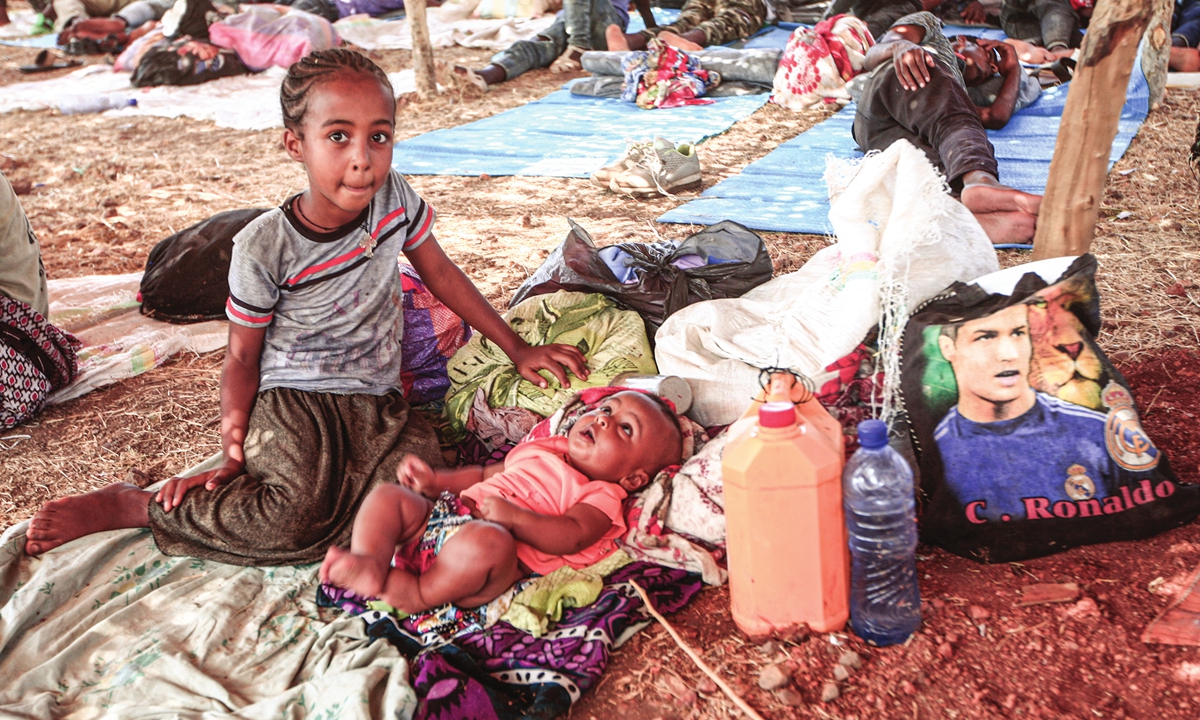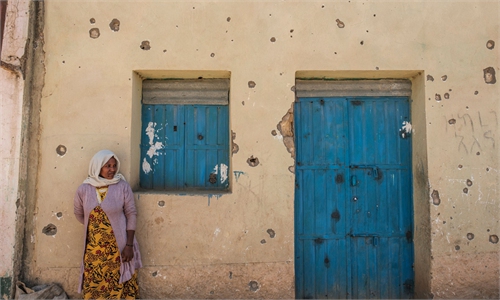
Ethiopian refugees who fled fighting in Tigray province lay in a hut at the Um Rakuba camp in Gedaref province, Sudan on Monday.
Large areas within Ethiopia's Tigray are now accessible by humanitarian workers, but aid shipments into the region are still blocked, UN humanitarians said on Tuesday.
Humanitarian access has improved within the country's northernmost region, with large areas now accessible, allowing humanitarian partners to gradually resume humanitarian operations, including food distribution, water trucking, medical supplies and farming seeds, said the UN Office for the Coordination of Humanitarian Affairs (OCHA).
However, the resupply of humanitarian supplies is critically needed, as is that of fuel, on which humanitarian operations depend, it said.
While supplies cannot enter Tigray, the rotation of humanitarian workers is improving, the office said. Commercial flights to and from Mekelle, the regional capital, stopped on June 23. However, road access for humanitarian workers from Addis Ababa to Mekelle through the neighboring Afar region was largely possible on July 1, Sunday and Tuesday.
Officials said nearly two dozen displacement sites had no water in Mekelle because there was no fuel to operate water pumps. Lack of fuel also impacts the transportation of humanitarian and commercial supplies inside the region. Several partners have also not been able to provide cash assistance, said the office.
"It is critical to get additional staff and humanitarian and commercial supplies into Tigray, restore electricity and telecommunications and ensure that cash and fuel are available throughout the region for the continuity of humanitarian operations," OCHA said.

